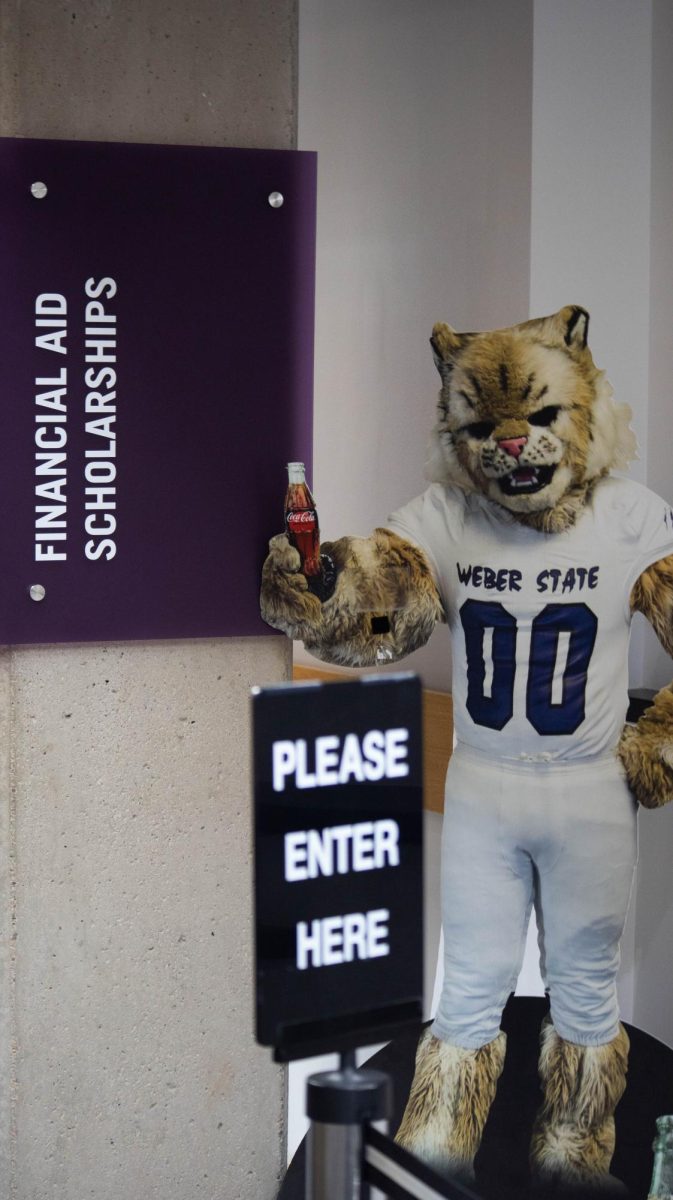
According to a recent study by Affordablecollegesonline.org, it pays to be a Weber State University student, and apparently it pays fairly well.
ACO just released its 2013 “Most Affordable Colleges — Low Cost/High Salaries” list. WSU was ranked 17th out of 58 institutions.
The National Center for Education Statistics shows WSU’s 2012-13 in-state tuition and fees, without books, at $4,768, which puts a baccalaureate degree at costing an estimated $21,728. ACO also shows the average starting salary for a WSU graduate is $45,500. This data suggests WSU has a high return on investment for its students.
ACO claims WSU ranks in the top 20, along with institutions such as New Mexico State University’s main campus, ranked 11th, and the University of Florida, ranked 14th, making WSU a university where students graduate with an advantage.
WSU is home to seven colleges and provides a wide variety of associate, baccalaureate and master degree programs which allow for many different career path choices, including liberal arts, sciences, and technical and professional fields.
“Weber State has many programs that are in line with the strong demands of what the economy is wanting,” said Scott Teichert, director of admissions. “Weber is producing graduates that are well prepared for high-demand careers.”
Winn Stanger, director of Career Services at WSU, said the university also aids its students by working closely with all WSU programs to find high-demand career opportunities for both soon-to-be graduates and students looking for internships. Stanger said the center makes it painstakingly easy for WSU students to find jobs by going out and meeting with prospective employers to supply a list of jobs available.
Career Services also offers comprehensive training and job-related advisement through career counseling, employment counseling, resume review and mock interviewing. Stanger said Career Services can also teach prospective employees about professional dress and food etiquette, just to make sure all areas are covered for any interview obstacle.
WSU President Charles Wight said there are many degrees and career paths to choose from at WSU, but a key element factoring into WSU’s ranking is the faculty and staff. He said WSU competes nationally to bring distinguished, quality professors to the campus.
Teichert said WSU professors are dedicated to helping their students. Many of the top professors, such as those in health sciences and engineering, could be making much larger salaries if they were working in their fields, yet these professors choose to invest in their students at WSU.
“I think we have a number of professors and faculty who have really bought into this idea of paying it forward,” Teichert said.
Perhaps the most important component factoring into how WSU graduates are starting out with high salaries is the student community itself. WSU has a diverse population of about 26,000, 61 percent being nontraditional.
Many students are graduating with work history and life experience already on their resumes above their degrees, said Pat Wheeler, coordinator for the Goddard School of Business and Economics Career Center. Wheeler said from an overall employer’s perspective that, because the average age is older at WSU, employers are getting more mature students who make career commitments and choose not to bounce around from one job to the next.
“They (WSU students) are very involved with their education, so they believe in volunteering and giving back to the community. Many of them help their peers,” said Debbie Cragun, coordinator for the Nontraditional Student Center. “They are the kind of student that will go above and beyond their degree, and they believe in the holistic approach to their education.”
ACO also cited the cultural offerings WSU possesses. With 175 clubs, 16 NCAA teams and a multitude of outdoor recreational options, WSU offers diversity and opportunities for students to explore an all-encompassing experience at their university.
“WSU is not just an institution,” Teichert said. “It is a sense of place.”



















